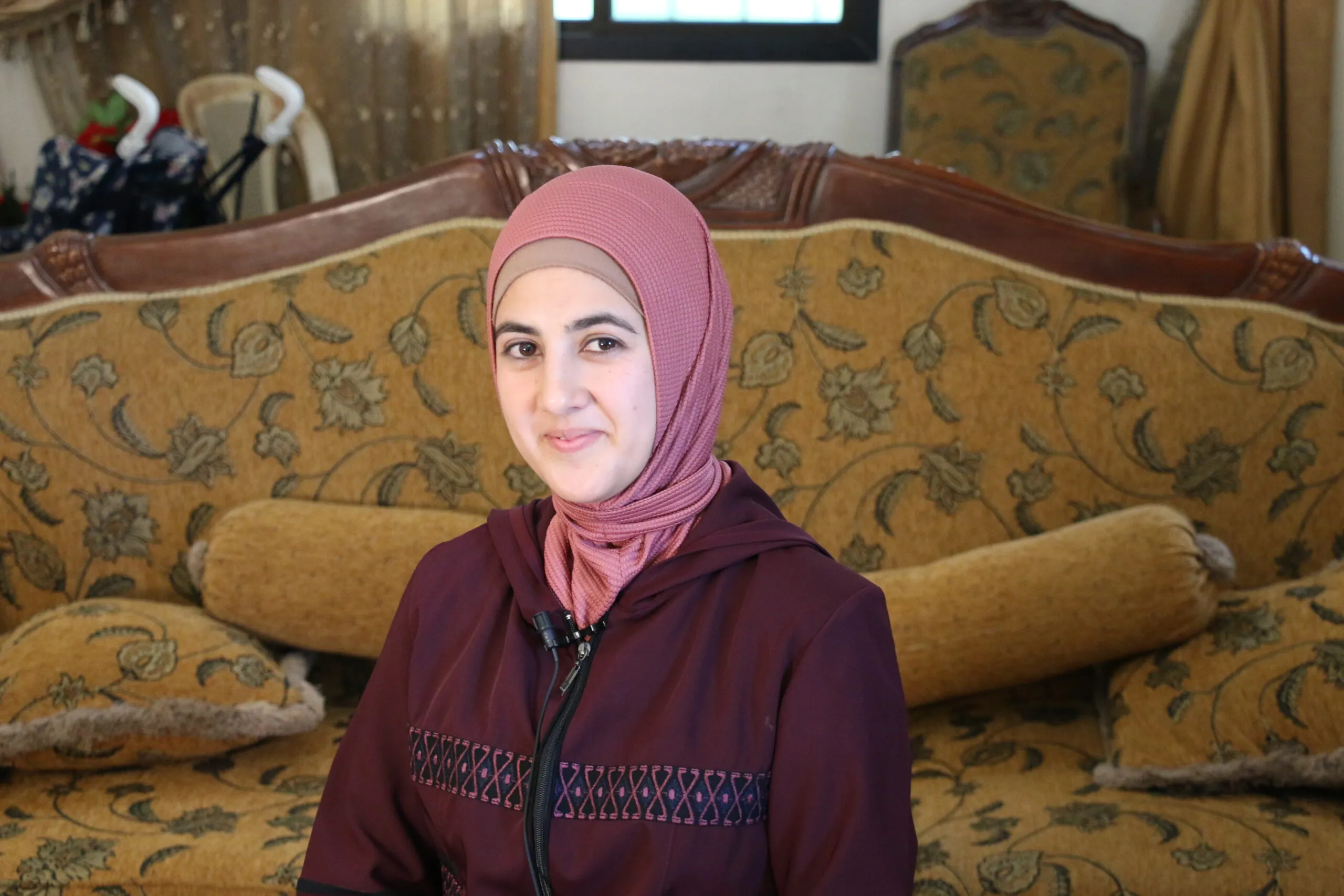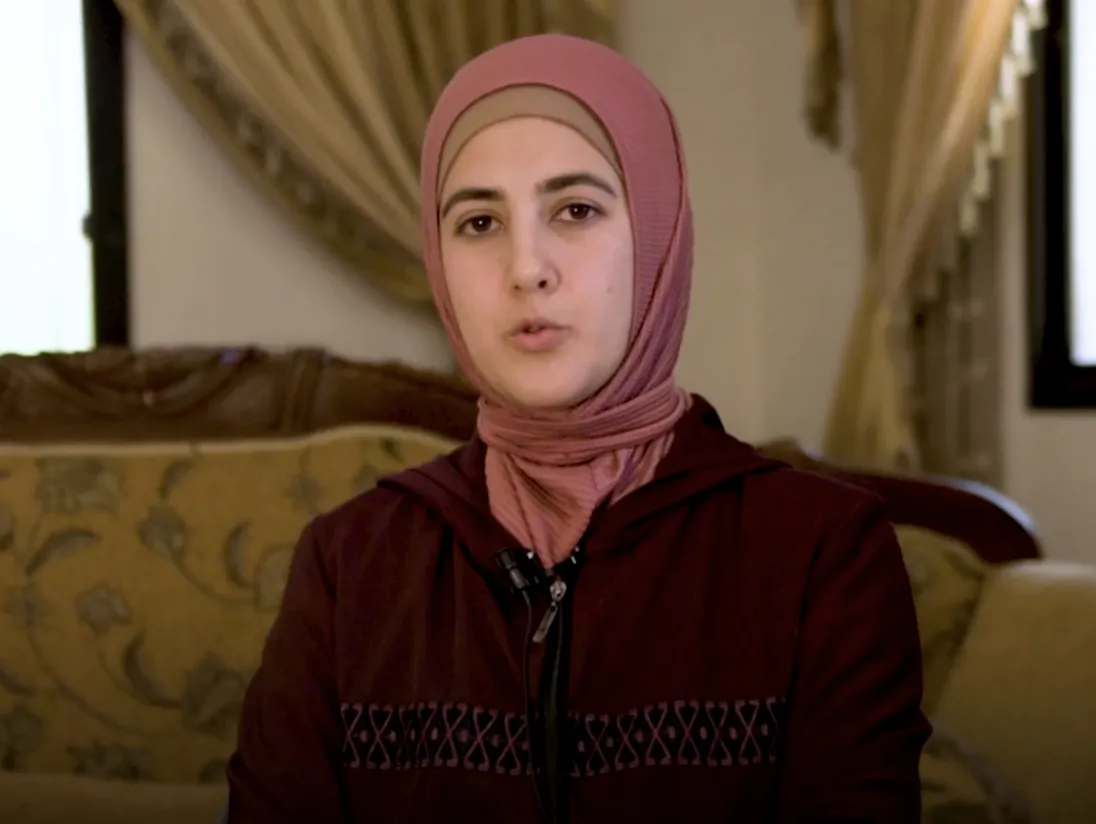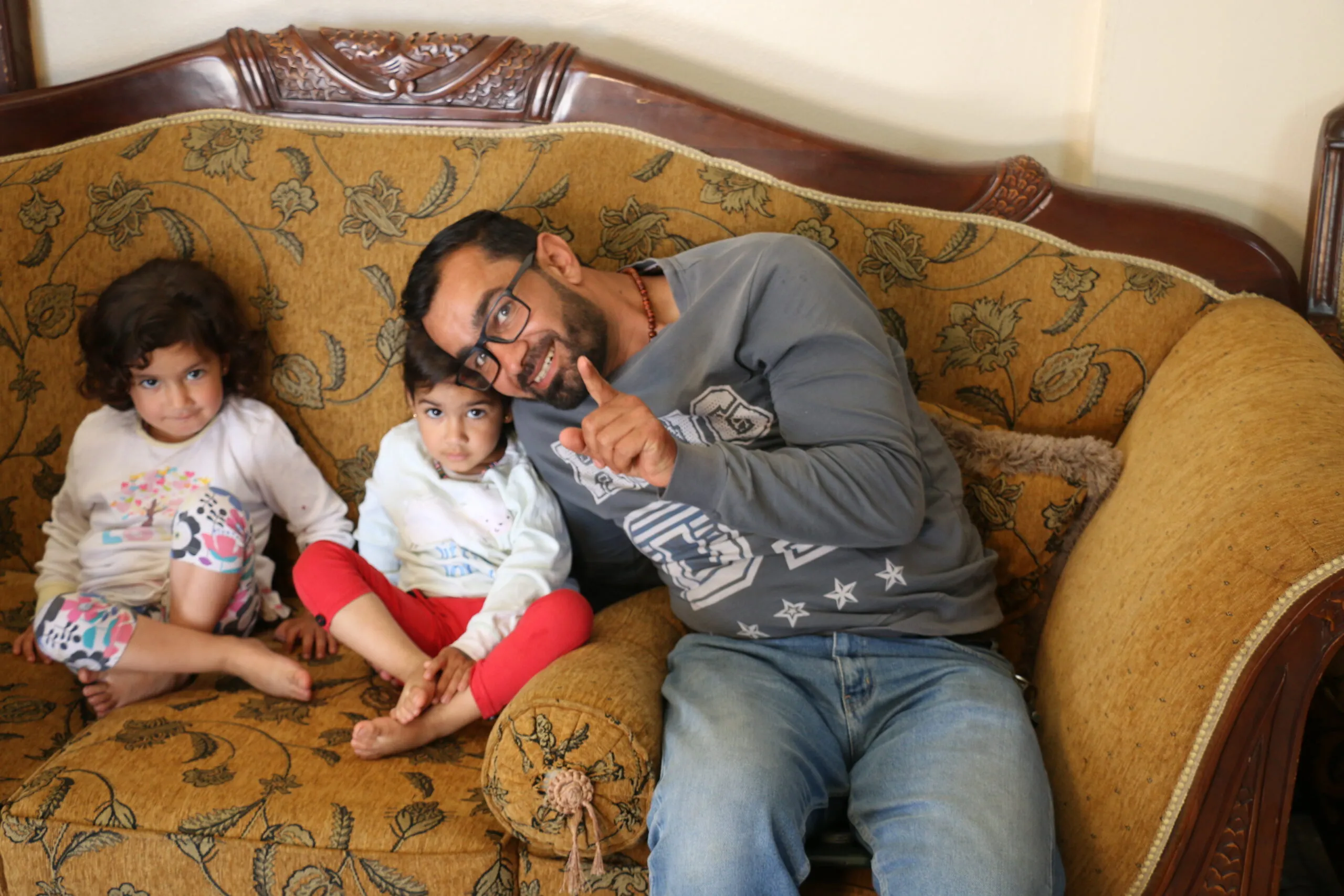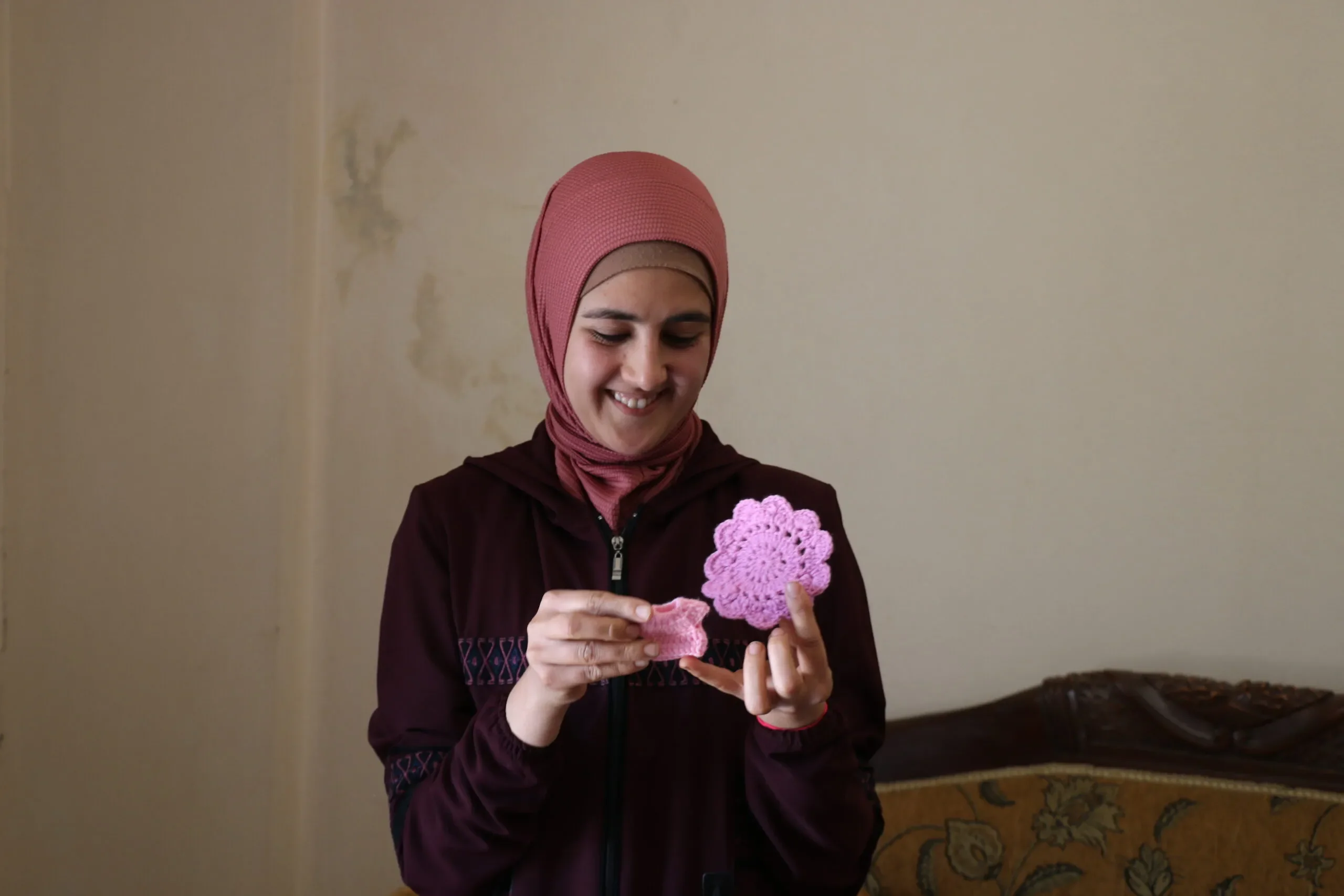My father went missing in Homs. I hope to see him again or to know something about him. Dad used to encourage me in anything I did. Even if it was something simple, he made me feel like it was an achievement or a great invention. I wish I could see him again, that he’s still here.
I struggled a lot; the road to get to my daughters was very long. When I got my daughters, the situation in Lebanon deteriorated. The prices increased. My daughters were very young, and we couldn’t find milk for them anymore, so they started eating what we had at home. I feel that my daughters were deprived of some things, but it wasn’t in my hands or my husband’s. My husband was doing everything he can, but the economy was in crisis, and we had the bare minimum.
My dream is for [my daughters] is to be in a good school. To not deprive them of anything because they are my happiness on earth, my heaven on earth, my own eyes. I want them to be the happiest. I should wish something for my husband. May my husband have his own land. At the end of the year, his hard work will be for himself, not for renting land and workers
He may have small means, but he has big ideas, and his work is beautiful. He was the first to plant strawberries in the region and everyone talked about it.
Sometimes I feel tired and don’t show it to my family, because they take their strength from me, and I take mine from them.
Every woman has potential but sometimes may need just a small push to start.
Women are the solid rib of society that does not tilt, even though our society says that women are crooked ribs, but that’s wrong. This crookedness exists to protect the heart. She protects the home, and the family, and she can be anything.
As told to CARE staff. Interview edited for clarity. For more information about CARE’s work in Lebanon, please visit our programs page here.




